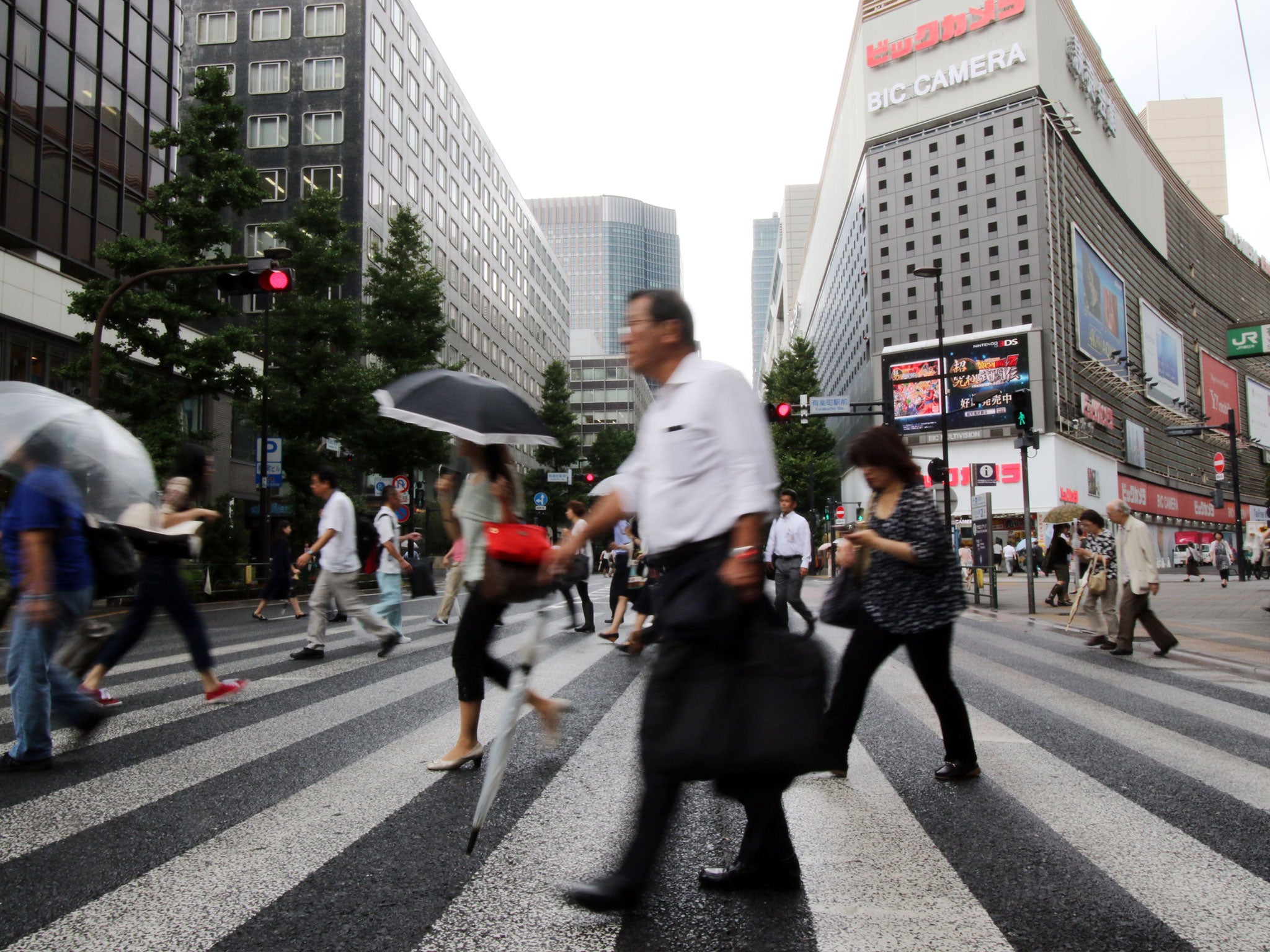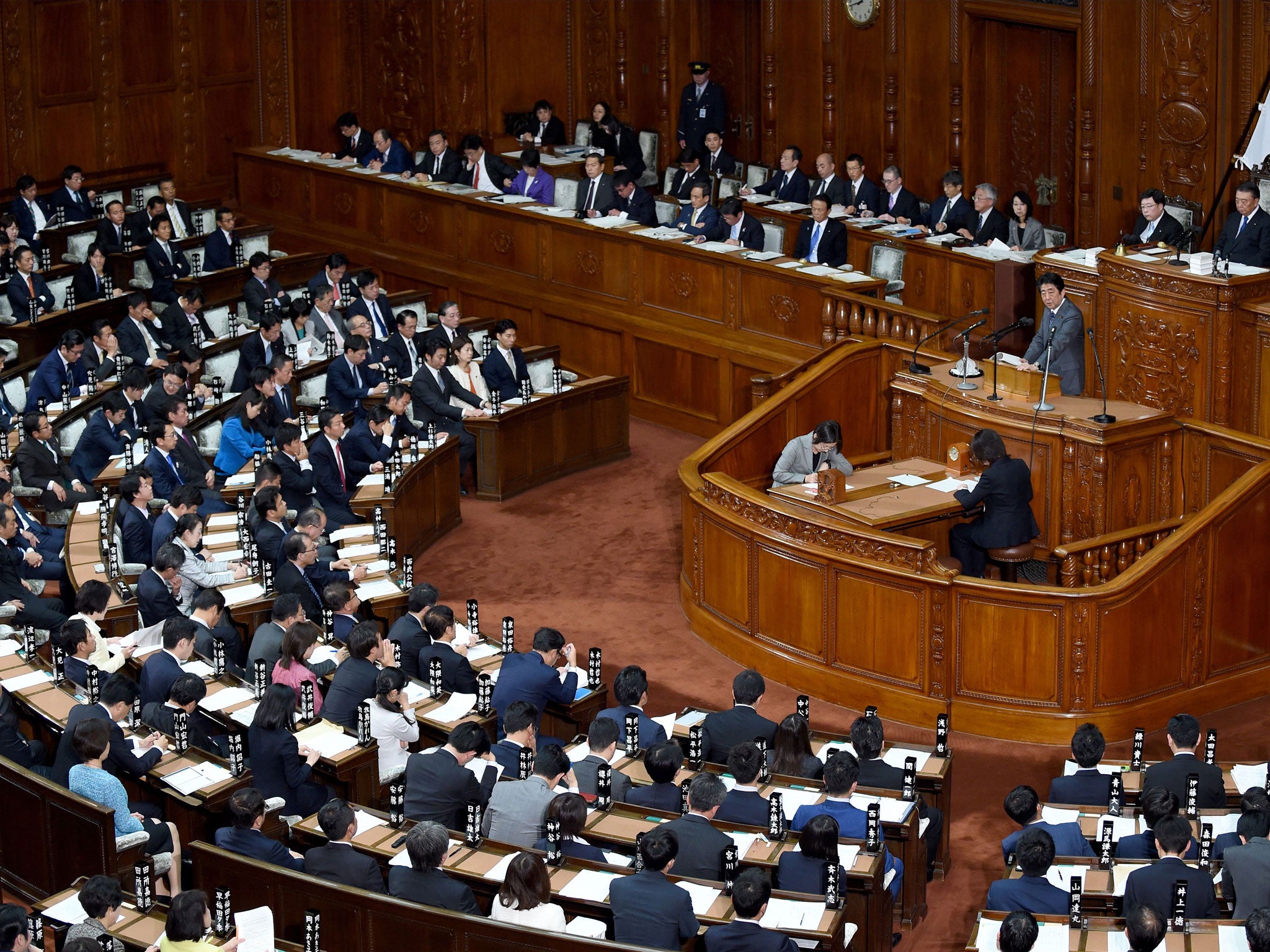Japan's Prime Minster Shinzo Abe refuses to relax immigration rules despite shrinking population
Less than 2 per cent of the population are foreign born

Japan’s Prime Minister Shinzo Abe has insisted his administration has “no intention” of loosening the country’s strict immigration policy despite warnings about its fast shrinking – and ageing – population.
On Monday during a debate in Japan's parliament, Mr Abe suggested there was justification for accepting foreign workers “where they are truly needed” to “keep Japan’s economy and infrastructure sustainable”.
But he was also steadfast in his opposition to any moves to reform the country’s strict border policy.
His reluctance to relax the rules for migrant workers is facing mounting criticism in Japan, where less than 2 per cent of the population are foreign born. That compares with more than 20 per cent in the UK.
Around one in five people in Japan is over 65 and the birth rate is at a record low.
The east Asian economic powerhouse has seen its workforce shrink by around two million since the 1990s – to 65 million – and the government has warned about the potential for a catastrophic collapse by 2050 to just over 40 million.
A points-based system was introduced five years ago to “promote entry of highly-skilled foreign professionals”.
And Japanese authorities have been clear about exactly who falls into this category.

Those involved in academic research, business management or “specialised/technical activities” will be given “preferential immigration treatment” and are most likely to be granted access to the jobs market, the guidelines say.
Other factors that work in an applicant’s favour are youth, a high income and ability to speak Japanese.
But when it comes to refugees, Japan is even less welcoming.
In the first half of 2017 it accepted just three asylum seekers. For the previous year, just 28 settled there.

The UN’s refugee agency has urged the country – one of the world’s richest – to resettle more asylum seekers at a time when its donations to the UN High Commissioner for Refugees have also slipped.
Japan's reluctance to accept foreigners mirrors a wider caution towards immigration in a nation where many pride themselves on cultural and ethnic homogeneity.
The government says that many people claim asylum in Japan to find work, encouraged by access to renewable work permits for people applying for refugee status.
The Justice Ministry, which oversees refugee recognition, is considering steps including restrictions on work permits for asylum seekers to curb what it deems "abusive" applications.
Join our commenting forum
Join thought-provoking conversations, follow other Independent readers and see their replies
Comments
Bookmark popover
Removed from bookmarks